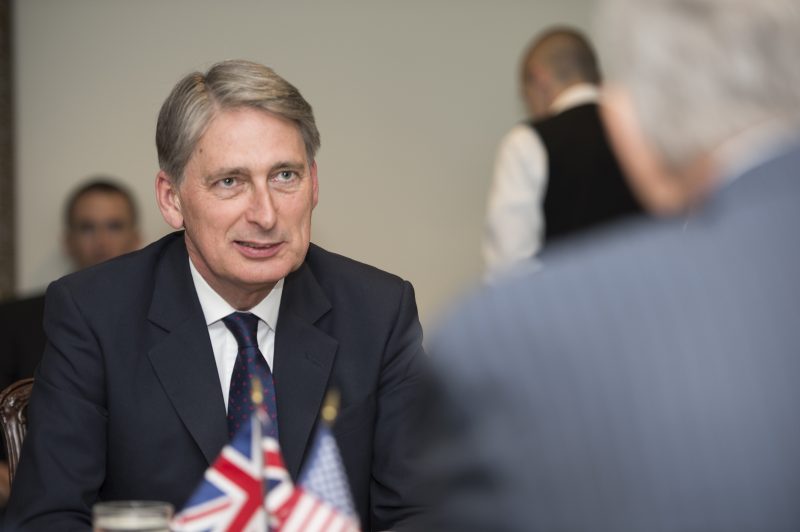Johnbosco Nwogbo
I think that a party that accepts and defends our present social and economic order, and sees no point in asking fundamental questions about it, is pretty darn evil, however you define evil. In other words, as the Tories accept capitalism unquestioningly, and defend it at every turn; and as I think capitalism provides the social and economic infrastructure upon which much else in present British society is built, it follows that the Tories are pretty evil.
A word about capitalism: I shall not attempt to offer a sophisticated definition of capitalism here. I shall simply take it to be a system in which the maximization of profit is regarded as the only (or at least the most) legitimate end. Of course, profit may be monetary as well as non-monetary, but most people would recognize that monetary profit rules the day (at least these days). Also, it is generally not irrelevant as to whether the profit (monetary or otherwise) in question is sort in the long-term or short-term. But here too, most people would agree that short-term monetary profit rules the day. In my view, most of the ills associated with capitalism are exacerbated, rather than ameliorated, by the quest for short-term monetary profits, as compared with longer-term, not-strictly-monetary profits.
Back to the question of evil: what do you call a system that puts much of the world to work doing back-breaking labour, all so that most of the wealth created in that process could go to a handful of bums at the top? You might say, not necessarily evil, and that may well be correct, but only if it were the case that this global workforce was sufficiently –which, by the way, is a much lower bar than being fairly– remunerated, so that “people in work” weren’t suffering and dying from hunger, malnutrition and easily preventable ailments. But too many aren’t.
Some estimates put the number of people that will die from hunger this year at 36 million and the number of desperately hungry people at 1 billion (theworldcounts.com). The picture is even worse for deaths from easily preventable diseases.
Beside hunger, malnutrition and disease, we can count wars, environmental depletion (with the effects that come in its wake, which disproportionately affect the poor), and human trafficking, among the ills of capitalism. The links between these and the capitalist system have been well-documented.
Contemporary capitalism is a global phenomenon. And if much of the UK political and media establishment had not spent the entire duration of the Brexit campaign insinuating that everyone who opted out of the EU was racist, they might have realized that the reasons many Brits offered for wanting out weren’t so different from the reasons people in Africa, South America, and Asia (including the Middle East) have offered against neocolonialism (global capitalism backed by the power of imperialist governments like the UK’s) for decades.
Here’s one reason: if a large company realistically could reduce its labour, environmental and political costs (and therefore increase its profits), or if it had an expectation that it could off-load as many of these costs onto the surrounding community with as few consequences as possible, by moving from Manchester to Warsaw, move from Manchester to Warsaw it will do. If it could have it still better in Lusaka, it would head there. If it didn’t, a competitor would, and this could spell doom for that company. The livelihoods and the well-being of the workers in Manchester be damned.
Meanwhile, politicians in these places enable this, allowing companies the most lax labour conditions possible, including those that all but permit near-slave labour with miserable pay.
To be sure, there would be hunger, disease, war and maybe even environmental degradation if capitalism did not exist. Other economic systems have also produced these, to different extents. But, unlike many defenders of capitalism, most decent people understand that this doesn’t make capitalism any less evil than it is. Hitler is believed to have been responsible for the deaths of 11 milllion people, while Pol Pot was only responsible for between 1 and 3 million deaths. We typically don’t think Pol Pot is less evil than Hitler. We think both were pretty evil.
Which brings me back to the Tories! Now, imagine there was a political party here that not only planned to look the other way and not enact laws that protected people, but, even worse, considers it their sacred duty to actively undermine existing labour and environmental protections in order to please capitalists in their quest for profit. That is the Tory party.
I think that a political party that has capitalism as its organizing principle is pretty evil. It is indubitable that the Tory party does. Philip Hammond reiterated the Tory love for capitalism at their conference at Manchester this year when he said of capitalism to Tory delegates, “as this model comes under renewed assault, we must not be afraid to defend it.”

